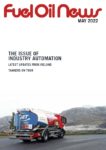The NIESR predicts that all regions in the UK will see extreme poverty rise by more than 10% in the coming year. According to the BBC, poverty levels in Northern Ireland are estimated to rise by a staggering 67% in the year ahead, bringing ‘the total number of destitute households to about 25,000.’
With this context, it is even more important that the Government in Northern Ireland avoids a one size fits all approach when the ‘Decarbonising Heat’ consultation arrives next year.
The consultation will seek opinions on how people should heat their homes going forward. The Department of Enterprise Minister and civil servants will then distil these into firm policies, creating a new energy plan that will assist in efforts to reach net zero targets by 2050.
An open mind
In Northern Ireland, energy policy is devolved, and we have the benefit of being in a position that allows us to review and reflect on the approaches to the sector that are being actioned in England and the Republic of Ireland.
In ROI, the Government is pushing electrification as the best option and is offering a grant of up to 50% off the cost of a deep retrofit and installation of a heat pump.
However, the average cost of these works is €56,000, which still leaves a large bill for the homeowner to finance and adds a significant burden on the taxpayer.
Similarly, England has offered a £5,000 grant towards an air-source heat pump, however, the total bill (including installation costs and any extra insulation works) is expected to be around £20,000.
At a time when Northern Ireland households are feeling the pressures of rising costs, the liquid fuel sector does not believe that a mixture of grants and loans will incentivise homeowners to make the switch to a heat pump.
Left behind on the road to net zero
OFTEC and the NI Oil Federation (NIOF) have been lobbying the local energy department and our message is simple, whilst heat pumps and retrofitting will be the right choice for many living in a new, thermally efficient, or recently built house, for those facing financial difficulties and living in an older, colder home, the cost is just prohibitive and there must be options considered that won’t leave them behind on the road to net zero.
Heating oil is currently used in over 500,000 homes in Northern Ireland. A recent analysis by the AECOM engineering company showed that biofuels in home heating could achieve similar emission reductions to retrofitting and heat pump install, quickly and at a much lower cost.
The current biofuel being promoted as the replacement for kerosene is HVO that offers an immediate c.88% reduction in carbon emissions.
Our message to Stormont would be to examine every option available and, as their strategy document states, “to keep low carbon options and no regret pathways” on the new Assembly’s agenda when considering the heating consultation next year. In the wake of the covid crisis, with public finances stretched, and the need to invest in the NHS, we need a pragmatic balance between support for cost- effective energy efficiency measures like loft insulation, and low cost, low carbon solutions like HVO.
A one size fits all approach must be avoided at all costs. For more information, visit: www.oftec.org/
